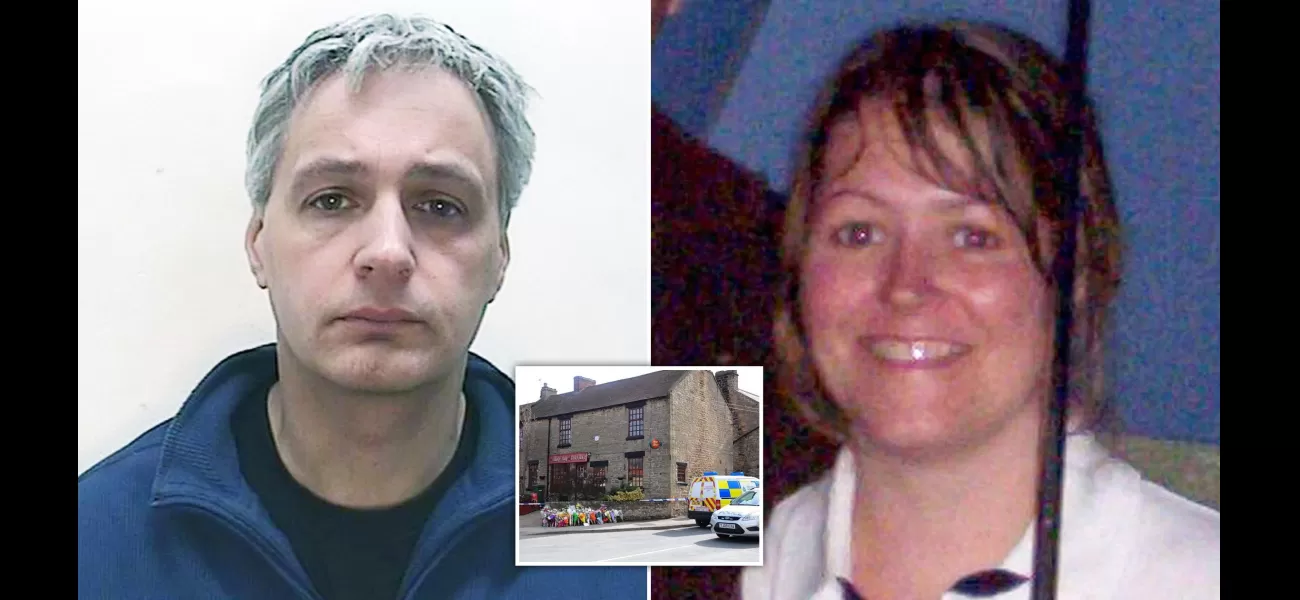The postmaster who was imprisoned for killing his wife believes that the Horizon scandal can potentially exonerate him.
"I am willing to die in prison for standing up for what is just."
January 28th 2024.

Robin Garbutt, a postmaster in his late 50s, has been proclaiming his innocence since his wife, Diana, was tragically killed in their shared flat above the post office they operated in the small village of Melsonby in North Yorkshire. Despite maintaining his innocence, Garbutt was convicted by a majority vote of 10 to 2 at Teesside Crown Court just one year after the incident. However, he firmly believes that clearing his name is the only way to catch the real killer responsible for his wife's death.
Speaking from HMP Wealstun, Garbutt revealed that he believes evidence from the faulty Horizon IT system was used to wrongfully convict him of his wife's murder. He claims that this evidence was used to "slight his good name" and provide the prosecution with a motive of theft. The events leading up to the tragedy began on the morning of March 23, 2010, when Garbutt called 999 after discovering his wife's lifeless body upstairs in their flat. According to Garbutt, he had just been robbed by a masked intruder who forced him to hand over £16,000 from the safe. He believes that this same intruder must have been responsible for his wife's death.
However, the prosecution had a different theory. They presented evidence from the Horizon system that showed Garbutt had been stealing money from the post office and had murdered his wife in order to cover up his losses. This evidence, combined with the fact that there was no physical evidence linking Garbutt to the scene or the murder weapon, led to his conviction. Garbutt believes that this evidence was crucial in swaying the jury and providing a motive for his supposed crime.
Garbutt recently watched the ITV drama "Mr. Bates Vs The Post Office," which sheds light on the scandal that saw numerous sub-postmasters falsely charged with theft and fraud. He described the drama as "upsetting and distressing" and sympathized with the victims. Having experienced being falsely accused himself, Garbutt understands the pain and suffering it can cause for loved ones and friends.
One key piece of evidence that was used against Garbutt was the time of his wife's death. The prosecution claimed that she died between 2:30am and 4:30am, which was before the post office's central locking system would have allowed the safe to be opened at 8:30am. This seemingly contradicted Garbutt's story of a robbery gone wrong. However, the prosecution's expert witness was later contradicted by a Home Office pathologist, and another expert suggested that the time of death may have been much later, possibly even after 6:45am. Garbutt's legal team argues that this would have made it nearly impossible for him to have committed the murder, as there was a steady stream of customers from 5:15am to 8:30am, all of whom testified that Garbutt seemed his "normal cheery self."
In addition to the discrepancies with the time of death, Garbutt's legal team has raised concerns about the DNA evidence in the case. The murder weapon, a rusty iron bar, was only found days after the murder and when it was swabbed for DNA, it was found to contain DNA from one of the police officers present when it was discovered. This raises questions about potential contamination of the evidence. Furthermore, the same constable's DNA sample was potentially found on a rust mark on a pillowcase in the couple's bedroom, despite not being on duty when the scene was examined.
To make matters worse, the most critical piece of evidence in the case, a clump of light-brown hair found on one of the pillows, was inexplicably lost before the trial even began. This hair did not belong to either Garbutt or his wife, so if it had been ripped out during a struggle with the killer, it could have held the killer's DNA profile. The mishandling of this evidence has been called "shocking" by solicitor Glyn Maddocks, who has been recognized for his work on miscarriages of justice. He stated that the forensic work in this case was disgraceful and that if it were his relative, he would be horrified.
Despite being turned down three times by the Criminal Cases Review Commission, Garbutt remains hopeful that one day he will be able to clear his name and bring the real killer to justice. He has vowed to never give up on his wife and will continue to fight for his innocence. However, he is currently not eligible for parole until 2030 and may remain behind bars for even longer if he maintains his innocence. Nevertheless, Garbutt remains determined and says he will never rest until justice is done for his beloved wife.
Speaking from HMP Wealstun, Garbutt revealed that he believes evidence from the faulty Horizon IT system was used to wrongfully convict him of his wife's murder. He claims that this evidence was used to "slight his good name" and provide the prosecution with a motive of theft. The events leading up to the tragedy began on the morning of March 23, 2010, when Garbutt called 999 after discovering his wife's lifeless body upstairs in their flat. According to Garbutt, he had just been robbed by a masked intruder who forced him to hand over £16,000 from the safe. He believes that this same intruder must have been responsible for his wife's death.
However, the prosecution had a different theory. They presented evidence from the Horizon system that showed Garbutt had been stealing money from the post office and had murdered his wife in order to cover up his losses. This evidence, combined with the fact that there was no physical evidence linking Garbutt to the scene or the murder weapon, led to his conviction. Garbutt believes that this evidence was crucial in swaying the jury and providing a motive for his supposed crime.
Garbutt recently watched the ITV drama "Mr. Bates Vs The Post Office," which sheds light on the scandal that saw numerous sub-postmasters falsely charged with theft and fraud. He described the drama as "upsetting and distressing" and sympathized with the victims. Having experienced being falsely accused himself, Garbutt understands the pain and suffering it can cause for loved ones and friends.
One key piece of evidence that was used against Garbutt was the time of his wife's death. The prosecution claimed that she died between 2:30am and 4:30am, which was before the post office's central locking system would have allowed the safe to be opened at 8:30am. This seemingly contradicted Garbutt's story of a robbery gone wrong. However, the prosecution's expert witness was later contradicted by a Home Office pathologist, and another expert suggested that the time of death may have been much later, possibly even after 6:45am. Garbutt's legal team argues that this would have made it nearly impossible for him to have committed the murder, as there was a steady stream of customers from 5:15am to 8:30am, all of whom testified that Garbutt seemed his "normal cheery self."
In addition to the discrepancies with the time of death, Garbutt's legal team has raised concerns about the DNA evidence in the case. The murder weapon, a rusty iron bar, was only found days after the murder and when it was swabbed for DNA, it was found to contain DNA from one of the police officers present when it was discovered. This raises questions about potential contamination of the evidence. Furthermore, the same constable's DNA sample was potentially found on a rust mark on a pillowcase in the couple's bedroom, despite not being on duty when the scene was examined.
To make matters worse, the most critical piece of evidence in the case, a clump of light-brown hair found on one of the pillows, was inexplicably lost before the trial even began. This hair did not belong to either Garbutt or his wife, so if it had been ripped out during a struggle with the killer, it could have held the killer's DNA profile. The mishandling of this evidence has been called "shocking" by solicitor Glyn Maddocks, who has been recognized for his work on miscarriages of justice. He stated that the forensic work in this case was disgraceful and that if it were his relative, he would be horrified.
Despite being turned down three times by the Criminal Cases Review Commission, Garbutt remains hopeful that one day he will be able to clear his name and bring the real killer to justice. He has vowed to never give up on his wife and will continue to fight for his innocence. However, he is currently not eligible for parole until 2030 and may remain behind bars for even longer if he maintains his innocence. Nevertheless, Garbutt remains determined and says he will never rest until justice is done for his beloved wife.
[This article has been trending online recently and has been generated with AI. Your feed is customized.]
[Generative AI is experimental.]
0
0
Submit Comment





